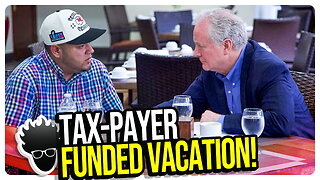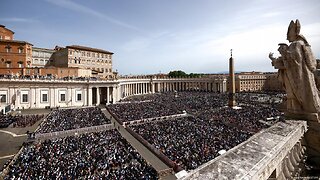Premium Only Content

What Is an Alteration Agreement in NYC Real Estate?
Save 2% When Buying in NYC: https://www.hauseit.com/hauseit-buyer-closing-credit-nyc/
Buyer Closing Cost Calculator for NYC: https://www.hauseit.com/closing-cost-calculator-for-buyer-nyc/
What is an alteration agreement? We'll demystify this topic in the following video. In case you're not familiar my name is Chris at Hauseit. Hauseit is the largest For Sale By Owner and Buyer Agent Commission Rebate company in New York City, established in 2014. If you have any questions about buying and selling and how you can save money on broker commissions as well as closing costs please check us out at https://www.hauseit.com.
So you own an apartment a co-op or a condo apartment in New York City and you think it's yours, so why not make a few changes, put up new cabinets, perhaps put in a washer/dryer or you want to put in some new windows. Why don't you just go ahead and do it? Especially, if you're in a condominium where there are granted less rules and you are a real property owner and you do own the interior of your apartment, at least. What's wrong with that?
Well we've seen this in person in real life examples with many people. For example, just changing the windows in a condominium unit is not allowed. In fact, any changes, additions of equipment, or alterations to an apartment are not allowed even if you are in a condominium unit not to mention a co-op apartment. In fact, the bylaws of condos and co-ops require any additions or alterations to the apartment itself even in the interior to be approved and consented to by the condominium or co-op corporation. In simple English, this means you need the approval of your condo or co-op board before doing any renovations or changes to your apartment regardless of whether you live in a co-op apartment or a condo apartment.
If you are an owner it does not matter and we definitely don't recommend testing the limits of patience of your condo or co-op board. If you try to do this an underhanded matter and secretly hoping that they won't ignore well it's very likely that the super or someone else in the building will eventually figure out that you did do some renovations or changes and when that happens if you don't have an alteration agreement sign and if it wasn't properly approved, well they could easily make you undo all of those changes.
For example in the window example we gave let's say a hypothetical condo owner decides to spend $8,000 and change his or her windows. Well, when the condominium board finds out they will actually make this condo owner swap out and throw away all of the windows and then do an alteration agreement go through the normal procedures install new windows for another $8,000.
And plus, don't forget all the fees associated with an alteration agreement which will discuss shortly. And what reason might a condo board give for changing windows that are exactly the same? Well, in one real-life example we've seen a condo board decided that the original windows besides not having been approved in the first place were a slightly different material even though the building itself was not landmarked. Meaning that there was no city regulation for what the exterior might look like.
So even though in this particular case the windows looked identical but they are of a slightly different material granted aluminum versus wood but the color being the same and from the outside any differences being imperceptible. Well once the Board found out the windows were required to be discarded, given away for free and then the condominium unit owner was required to go through the same process, pay all the applicable fees and get all the applicable sign offs and then pay for new windows as well. So all in double the cost. Please don't make this mistake.
So, what's included in a typical alteration agreement? Well, it's a lengthy legal document between the condominium or co-op corporation and the owner. Essentially, the corporation that is run by the condo or co-op board of directors on behalf of all the unit owners. It's an agreement between this corporation and the individual unit owner of a condo or a shareholder of a co-op corporation. This agreement for example would state what fees are required as a part of the alteration process. There will usually be a non-refundable alteration agreement fee that's paid to the building. There will also usually be a refundable escrow deposit to pay for any damages that might occur.
Calculate Your Buyer Closing Costs: https://www.hauseit.com/closing-cost-calculator-for-buyer-nyc/
Save 2% When Buying in NYC: https://www.hauseit.com/hauseit-buyer-closing-credit-nyc/
.
.
Hauseit LLC, Licensed Real Estate Broker
Tel: (888) 494-8258 | https://www.hauseit.com
_
#hauseit #hauseitnyc
-
 LIVE
LIVE
Tucker Carlson
1 hour agoThe Pentagon Didn’t Fire Dan Caldwell Over Leaks. They Fired Him for Opposing War With Iran.
8,797 watching -
 LIVE
LIVE
The Jimmy Dore Show
2 hours agoHillary Calls for Imprisoning Hillary! Rogan MOCKS Douglas Murray! w/ Kari Simpson & Katie Pasitney
13,666 watching -
 LIVE
LIVE
JustPearlyThings
56 minutes agoHigh Value Men Are Happy With Wives That Are Mid (Call-in Show) | Pearl Daily
500 watching -
 LIVE
LIVE
megimu32
1 hour agoON THE SUBJECT: Mixtapes, Mosh Pits & Mistakes: How 90s Rock Raised Us
192 watching -
 58:57
58:57
Donald Trump Jr.
4 hours agoAmerica First, Always. Interviews with Ned Ryun & Kenny Cody | TRIGGERED Ep.235
72K59 -
 52:11
52:11
BonginoReport
4 hours agoDHS Sec Noem ROBBED By Masked Man on Easter - Nightly Scroll w/ Hayley Caronia (Ep.31)
46.8K55 -
 1:13:46
1:13:46
Kim Iversen
4 hours agoKlaus Schwab Steps Down—But the WEF Agenda Marches On
67.7K76 -
 1:24:34
1:24:34
vivafrei
6 hours agoVan Hollen's Tax-Payer Funded Vacay! Canada Liberals are Absolutely INSANE! Hegseth Hit Piece & MORE
70K25 -
 55:55
55:55
LFA TV
1 day agoEurope’s Religious Revival | TRUMPET DAILY 4.21.25 7PM
6.61K -
 LIVE
LIVE
Quite Frankly
6 hours ago"Death of Pope Francis, Klaus Retires, Easter Review" 4/21/25
1,085 watching